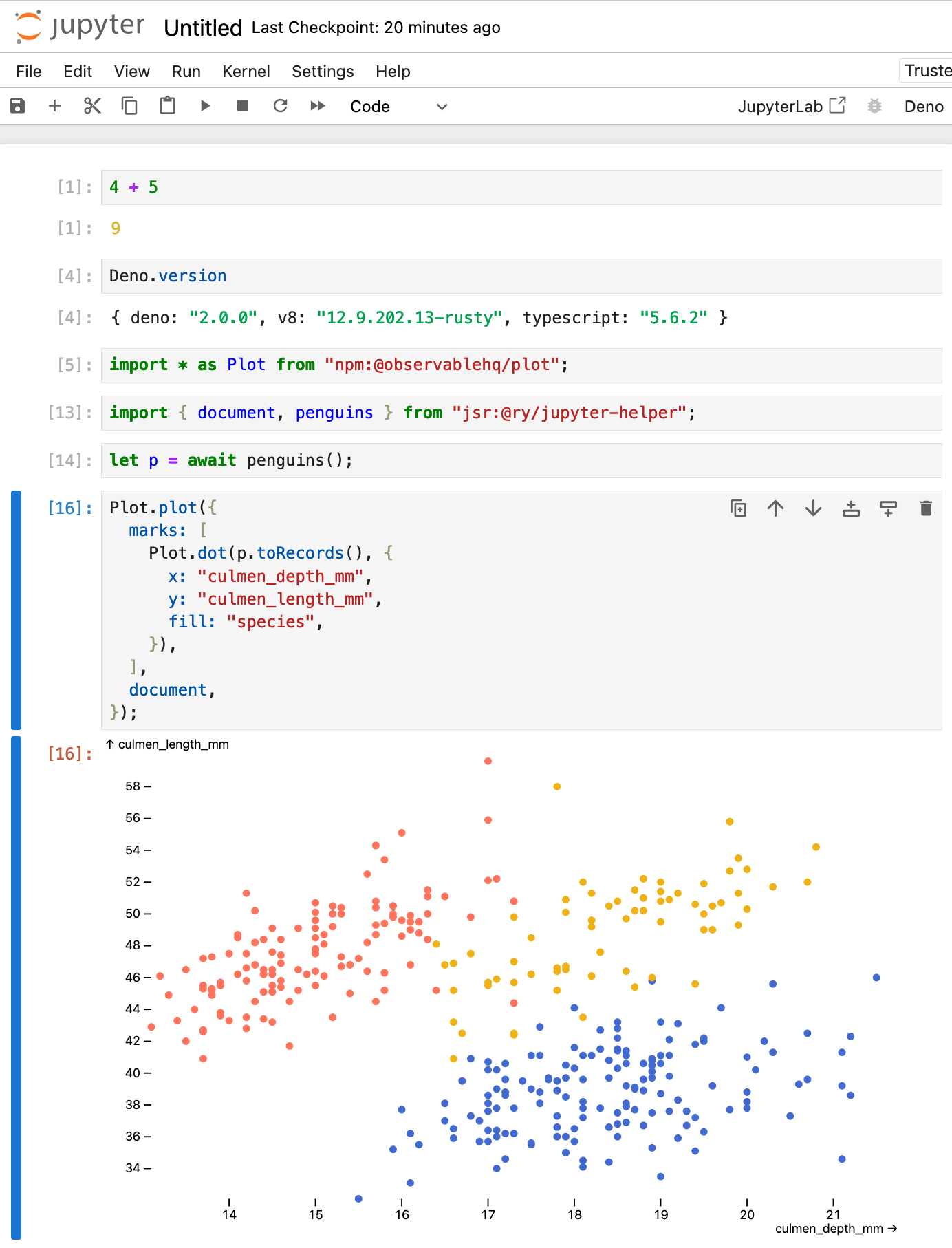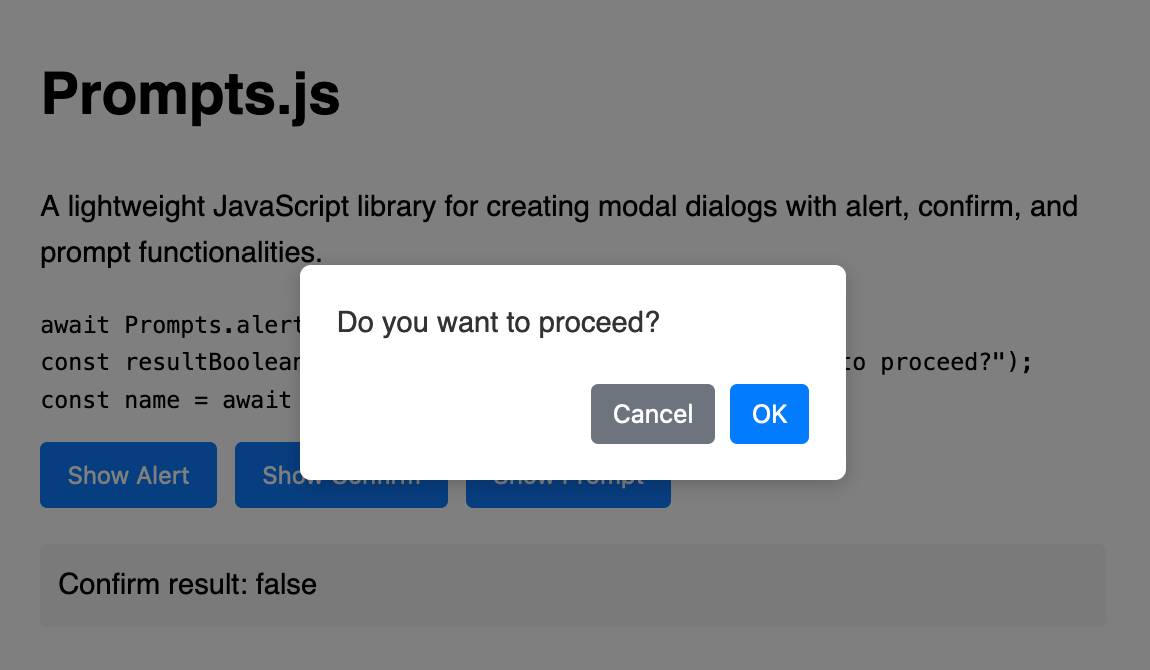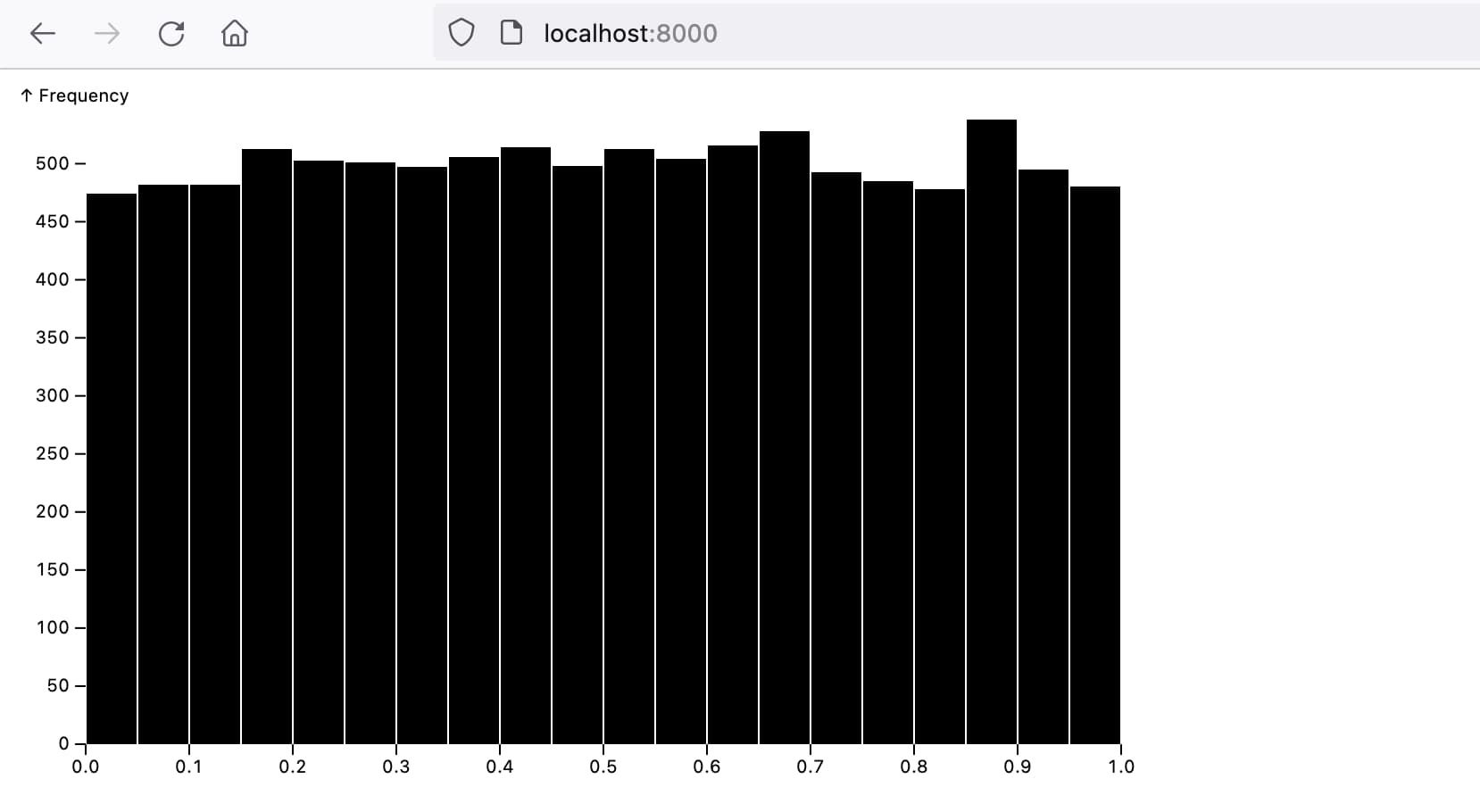19 posts tagged “npm”
2024
Prompts.js
I’ve been putting the new o1 model from OpenAI through its paces, in particular for code. I’m very impressed—it feels like it’s giving me a similar code quality to Claude 3.5 Sonnet, at least for Python and JavaScript and Bash... but it’s returning output noticeably faster.
[... 1,119 words]Importing a frontend Javascript library without a build system.
I sometimes think the hardest problem in computer science right now is taking an NPM library and figuring out how to download it and use it from a <script> tag without needing to involve some sort of convoluted build system.
Julia Evans shares my preference for build-free JavaScript, and has shared notes about figuring out how to turn an arbitrary NPM package into something that can be loaded in a browser.
It's so complicated! This is the best exploration I've seen yet of the topic but wow, this really needs to be easier.
My download-esm tool gets a mention, but I have to admit I'm not 100% confident in that as a robust solution. I don't know nearly enough about the full scope of the problem here to confidently recommend my own tool!
Right now my ideal solution would turn almost anything from NPM into an ES module that I can self-host and then load using import ... from in a <script type="module"> block, maybe with an importmap as long as I don't have to think too hard about what to put in it.
I'm intrigued by esm.sh (mentioned by Julia as a new solution worth exploring). The length of the documentation on that page further reinforces quite how much there is that I need to understand here.
Announcing Deno 2. The big focus of Deno 2 is compatibility with the existing Node.js and npm ecosystem:
Deno 2 takes all of the features developers love about Deno 1.x — zero-config, all-in-one toolchain for JavaScript and TypeScript development, web standard API support, secure by default — and makes it fully backwards compatible with Node and npm (in ESM).
The npm support is documented here. You can write a script like this:
import * as emoji from "npm:node-emoji";
console.log(emoji.emojify(`:sauropod: :heart: npm`));And when you run it Deno will automatically fetch and cache the required dependencies:
deno run main.js
Another new feature that caught my eye was this:
deno jupyternow supports outputting images, graphs, and HTML
Deno has apparently shipped with a Jupyter notebook kernel for a while, and it's had a major upgrade in this release.
Here's Ryan Dahl's demo of the new notebook support in his Deno 2 release video.
I tried this out myself, and it's really neat. First you need to install the kernel:
deno juptyer --install
I was curious to find out what this actually did, so I dug around in the code and then further in the Rust runtimed dependency. It turns out installing Jupyter kernels, at least on macOS, involves creating a directory in ~/Library/Jupyter/kernels/deno and writing a kernel.json file containing the following:
{
"argv": [
"/opt/homebrew/bin/deno",
"jupyter",
"--kernel",
"--conn",
"{connection_file}"
],
"display_name": "Deno",
"language": "typescript"
}That file is picked up by any Jupyter servers running on your machine, and tells them to run deno jupyter --kernel ... to start a kernel.
I started Jupyter like this:
jupyter-notebook /tmp
Then started a new notebook, selected the Deno kernel and it worked as advertised:

import * as Plot from "npm:@observablehq/plot";
import { document, penguins } from "jsr:@ry/jupyter-helper";
let p = await penguins();
Plot.plot({
marks: [
Plot.dot(p.toRecords(), {
x: "culmen_depth_mm",
y: "culmen_length_mm",
fill: "species",
}),
],
document,
});npm install everything, and the complete and utter chaos that follows (via) Here’s an experiment which went really badly wrong: a team of mostly-students decided to see if it was possible to install every package from npm (all 2.5 million of them) on the same machine. As part of that experiment they created and published their own npm package that depended on every other package in the registry.
Unfortunately, in response to the leftpad incident a few years ago npm had introduced a policy that a package cannot be removed from the registry if there exists at least one other package that lists it as a dependency. The new “everything” package inadvertently prevented all 2.5m packages—including many that had no other dependencies—from ever being removed!
Observable Framework 1.1 (via) Less than three weeks after 1.0, the 1.1 release adds a whole lot of interesting new stuff. The signature feature is self-hosted npm imports: Framework 1.0 linked out to CDN hosted copies of libraries, but 1.1 fetches copies locally and then bundles that code with the deployed static site.
This works by using the acorn JavaScript parsing library to statically analyze the code and find all of the relevant imports.
NPM: modele-social (via) This is a fascinating open source package: it’s an NPM module containing an implementation of the rules for calculating social security contributions in France, maintained by a team at Urssaf, the not-quite-government organization in France that manages the collection of social security contributions there.
The rules themselves can be found in the associated GitHub repository, encoded in a YAML-like declarative language called Publicodes that was developed by the French government for this and similar purposes.
2023
Deno 1.34: deno compile supports npm packages.
This feels like it could be extremely useful: Deno can load code from npm these days (import { say } from "npm:cowsay@1.5.0") and now the deno compile command can resolve those imports, fetch all of the dependencies and bundle them together with Deno itself into a single executable binary. This means pretty much anything that's been built as an npm package can now be easily converted into a standalone binary, including cross-compilation to Windows x64, macOS x64, macOS ARM and Linux x64.
download-esm: a tool for downloading ECMAScript modules
I’ve built a new CLI tool, download-esm, which takes the name of an npm package and will attempt to download the ECMAScript module version of that package, plus all of its dependencies, directly from the jsDelivr CDN—and then rewrite all of the import statements to point to those local copies.
[... 1,240 words]Making SQLite extensions npm install’able for Node.js, and on deno.land/x for Deno (via) Alex Garcia figured out how to get his “pip install X” trick for distributing compiled SQLite extensions to work for Node too! Now you can “npm install” 10 of his extensions, including sqlite-regex and sqlite-xsv and sqlite-http and sqlite-html and more, and attach them to a node-sqlite3 or better-sqlite3 connection. He’s bundled them for Deno too!
2022
Bun. “Bun is a fast all-in-one JavaScript runtime”—this is very interesting. It’s the first project I’ve seen written using the Zig language, which I see as somewhat equivalent to Rust. Bun provides a full Node.js-style JavaScript environment plus a host of packaged tools—an npm install client, a TypeScript transpiler, bundling tools—all wrapped up in a single binary. The JavaScript engine itself extends JavaScriptCore. Bun also ships with its own wrapper for SQLite.
2021
Weeknotes: Shaving some beautiful yaks
I’ve been mostly shaving yaks this week—two in particular: the Datasette table refactor and the next release of git-history. I also built and released my first Web Component!
[... 1,307 words]Dependency Confusion: How I Hacked Into Apple, Microsoft and Dozens of Other Companies (via) Alex Birsan describes a new category of security vulnerability he discovered in the npm, pip and gem packaging ecosystems: if a company uses a private repository with internal package names, uploading a package with the same name to the public repository can often result in an attacker being able to execute their own code inside the networks of their target. Alex scored over $130,000 in bug bounties from this one, from a number of name-brand companies. Of particular note for Python developers: the --extra-index-url argument to pip will consult both public and private registries and install the package with the highest version number!
2019
Two malicious Python libraries caught stealing SSH and GPG keys. Nasty. Two typosquatting libraries were spotted on PyPI—targetting dateutil and jellyfish but with tricky variants of their names. They attempted to exfiltrate SSH and GPG keys and send them to an IP address defined server. npm has seen this kind of activity too—it’s important to consider this when installing packages.
2018
npm users have downloaded more than 489 billion packages in the 9 year life of the project, with the strange effect of exponential growth being that 286 billion, or 58% of those, were just in the last year.
The nature of NPM is such that I'd expect most large corporate Node software to depend on at least a couple of single individuals' hobby projects. The problem is that those projects don't tend to fulfill the same expectations of security, quality and maintenance.
source-map-explorer. Very neat tool for creating a tree map visualization of the size of the components of a bundled JavaScript file created by webpack (or if you’re using create-react-app by “npm run build”). I ran this using “npx source-map-explorer build/static/js/main.d63f3f34.js” (since I don’t like using “npm install -g”).
Incident report: npm. Fascinating insight into the challenges involved in managing a massive scale community code repository. An algorithm incorrectly labeled a legit user as spam, an NPM staff member acted on the report, dependent package installations started failing and because the package had been removed as spam other users were able to try and fix the bug by publishing fresh copies of the missing package to the same namespace.
2017
Serverless is a somewhat unhelpfully misleading term for "highly scalable stateless code". All the times I've seen serverless stuff work really well it was workloads that were usually zero but occasionally 30k/sec without warning. I've run a company with that kind of workload and serverless stuff would have saved us a ton of money. Publishing to the [npm] registry could be done as a serverless app but there's little benefit because we do not get huge spikes in publishing. We get huge spikes in downloads but serverless isn't useful there because it's a read-only case and very little processing is done. Serverless is a great solution to one type of problem. It's very seldom the case that you can convert all your problems into that shape.
2014
Does Go have an equivalent node.js’s NPM?
Sort of. Go ships with a command that can download and compile a dependency for your project ("go get github.com/russross/blackfriday") but it doesn’t have a solution for library versioning yet (as far as I can tell).
[... 62 words]

